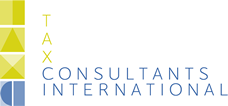Accounting & Corporate Secretarial Services Global Mobility Services International labor and cross border assignments
Last year, the Dutch government announced that the duration of the 30%-ruling will be reduced from eight to five years as of 1 January 2019. Recently, the Council of Ministers has agreed to this change. The change in the duration stems from an evaluation of the 30%-ruling done in 2017.
The 30%-ruling
The 30%-ruling is a special facility for employees who are hired or assigned from abroad to work in the Netherlands and who have specific skills that are scarcely available on the Dutch labor market. The biggest advantage of the ruling is that max. 30% of the wage may be reimbursed free of tax to the employee. The 30%-ruling intends to cover the extraterritorial costs made in relation to the assignment. Another advantage is that the employee may opt to be treated as a partial non-resident taxpayer in the personal income tax return, meaning that only specific Dutch sources are subject to tax in box 2 and 3.
Consequences per 2019 – also for existing cases
The reduced duration will be applicable to both new and existing cases. Expats who have been granted the 30%-ruling five years prior to 1 January 2019, will immediately lose the 30%-ruling when the new legislation enters into force. This means that for expats that have been granted the 30%-ruling during 2014, the ruling will be terminated during 2019 (and so on, and so on).
It will also no longer be possible to opt for the partial non-resident taxpayer in the Dutch personal income tax return for more than 5 years. This leads to expats reporting their worldwide savings and investments in their Dutch income tax return after 5 years of having the 30%-ruling. Income tax would subsequently be due on the deemed return on investment on the net asset value, such as bank and savings accounts and investments.
The reduced duration of the 30%-ruling to 5 years will be felt immediately by the expats in their pocket.
If an expat does not qualify for the 30%-ruling (or if the actual extraterritorial costs exceed 30% of the gross salary), it is possible for an employer to reimburse the actual extraterritorial costs incurred. This possibility will be curtailed as well to five years.
The changes in the 30%-ruling, including exact details of the new legislation, will be included in the Tax Plan for 2019, which will be announced on the third Tuesday of September 2018.


.png)



